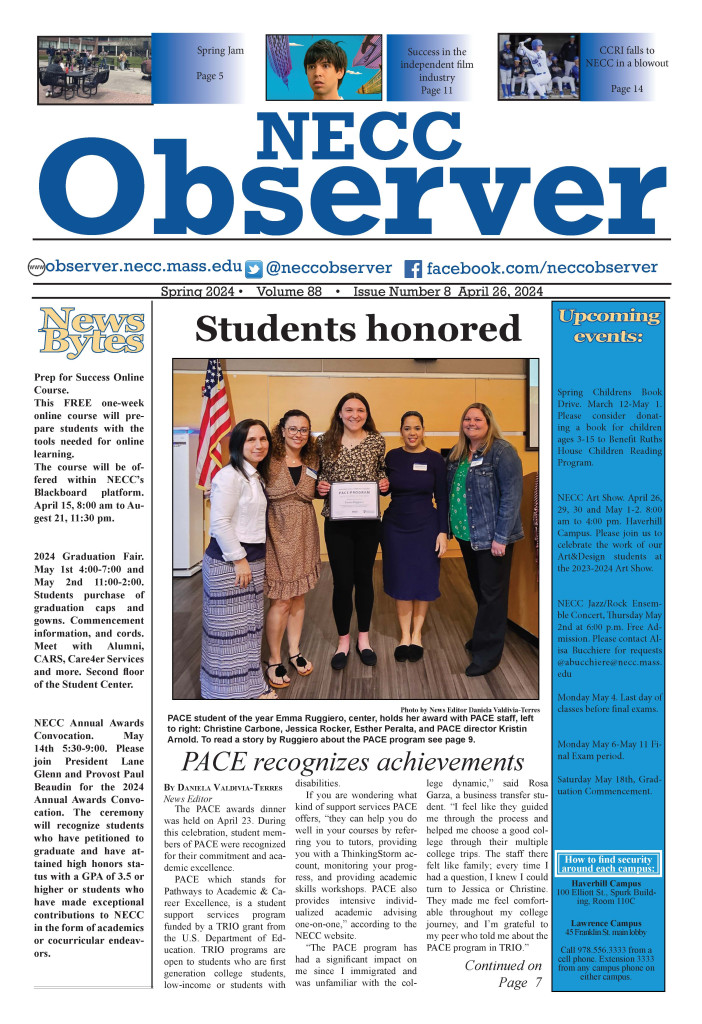Xiqiang Hong lived through the Chinese Cultural Revolution in 1966 and eventually immigrated to the United States. I was given the privilege to talk to him about his thoughts on the American Dream and how his life experiences shaped his perception.
When I spoke with him, he was very friendly, but also very practical and to the point. Hong was born in the Fujian Province in China. He now lives in Beverly, where he moved in 1994.
“I came to Massachusetts for a postdoctoral job at New England Biolabs,” he said, “Before that, I came to California in 1983 to study for my PhD graduate study.”
Hong now works at Cell Signaling Technology in Danvers. Cell Signaling produces reagents such as antibodies that are used to study the cell signaling pathways that affect human health. Hong started working at the company when it was started, as it branched off from New England Biolabs.
We eventually began to talk about events in life that have impacted us both positively and negatively. He told me about his life as a teenager during the Cultural Revolution in China and it was extremely eye-opening.
“Before my college education, I had only 6 years of schooling, 5 years of primary school and 1 year of middle school (in 1966),” Hong explained to me, “In 1966, when the Culture Revolution broke out and schooling was stopped in China, I was in my 6 th year of schooling.”
The Cultural Revolution was a sociopolitical movement that’s goal was to preserve Communism in China. It also aimed to get rid of any remaining traces of capitalism and traditional Chinese society. Schools and universities were shut down and a movement known as the “Down to the Countryside Movement.” This movement rounded up privileged and educated children and teenagers and sent them to work on farms. Hong was one of these children, just 13 at the time.
“In the next 10 years, nobody would think there was any chance for education restoration at all in future. But I still kept learning knowledge through self-teaching in my spare time. It was viewed by many as ‘useless’” Hong said.
Hong spoke about how he chose to keep educating himself, though it did not seem that he would ever get the chance to attend college (interestingly enough, Hong described himself to me as a person who is not very ambitious).
“But, I did not do it because it was useful in terms of preparing myself for a college admission,” Hong said, “I did it because I thought it was the right thing to do. I thought knowledge was useful, and it’s shameful to just let the time slip through.”
This proved to be a very critical decision for him, as a member of what is sometimes called China’s “lost generation,” which Hong mentioned.
“Then in 1977 the country had the power structure changed. The new administration restored college education and I was able to pass the exam to be admitted to a college, whereas many of my peers (a group of 60 million youths) could not simply because they had stopped learning.”
His college education in China brought him to California in 1983, at the age of 30. There he completed a graduate study and obtained his PhD. It was when he came to the USA, that he first heard of the term the “American Dream.”
“I can’t recall exactly when. But definitely after (probably not long after) coming to this country, from TV news reports, I believe.”
Hong is not sure if he believes in the concept of the American Dream completely, “Sort of. But before I came to the USA, I did not hear the word, though I certainly came with the idea of enjoying a great life opportunity.”
Hong also mentioned that back in China there is sort of the concept of the “Chinese Dream.” This represents new opportunities that he himself did not have, leading to his moving to the United States. Here he has begun to form his own conception of the so-called “American Dream.”
When talking about his personal thoughts on the term he said that to him the American Dream means, “Opportunity and freedom to develop yourself.” Over time, he thinks he has learned what makes the American Dream work for him.
“More and more I affirm the belief that American Dream means not just opportunities but also hard work to make the dream come true. In Chinese, we have a saying similar to “You reap what you sow” but in the good connotation.”
The last thing Hong said to me was a summation of everything he spoke about.
“The essence of this story,” he said, “I guess, is regardless of your environment and opportunities, sometimes you just have to do the thing you think you should be doing, even if it would seem useless practically. Then when the opportunity comes, you grab it.”
Editor’s Note: Sabine Smith is completing this series of profiles focused on the American Dream as an Honors Project for Journalism I.


